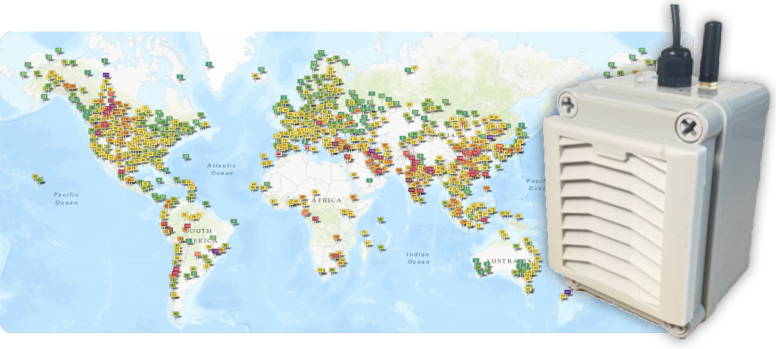Welcome to the AirNet Sensor Data Quality Validation service.
Station: PAEC Employees Housing Society, Rawat, Pakistan also known as "Citizen Science project sensor.community 90833"located at "PAEC Employees Housing Society, Rawat, Zone V, Islamabad Capital Territory, 47294, Pakistan".
--
Sensor data validation is done by looking at both the standalone sensor data (when the sensor is producing minute-level data) and the comparative data (when the sensor is co-located with other sensors).
Standalone Data Quality
In order to ensure the highest level of data quality, the signal to noise ratio (SNR), defined as the coefficient of variation from the hourly readings, should be relatively low (below 33%).
Any measurement with SNR constantly higher than 10% could be biased because of incorrect sensor readings (such as defective fan or dust accumulation).
Comparative Data Quality
In order to compare the sensor data with the co-located sensor, the "data readings confidence zone" graph is used, where the red line represents the hourly readings from the sensor, while the green line represents the median of the hourly readings of the station neighbors.
The zone filled in green represents the confidence zone, equivalent to 3 times the standard deviation of the neighbor stations.
Each time the station hourly reading goes above the confidence zone, the station is considered producing abnormal reading.
The larger the difference between the hourly reading and confidence zone, the more likely the station is considered as producing invalid data.
The formula is defined as:
P=probability, D=distance and W=P*D
where 'i' is iterated over the past 3 days data and 'n' is the number of samples during those past 3 days (most likely n = 24*3).
If W>30, the station is automatically disabled.
Further questions
If you have any question or comment, send us a message using the form below:

